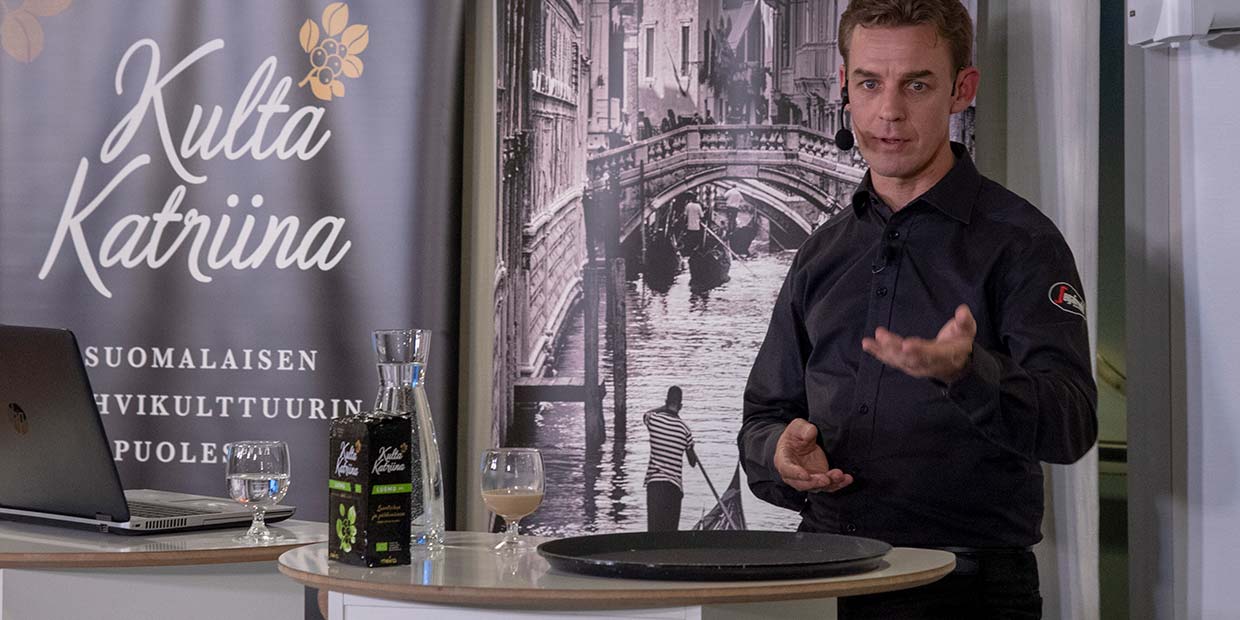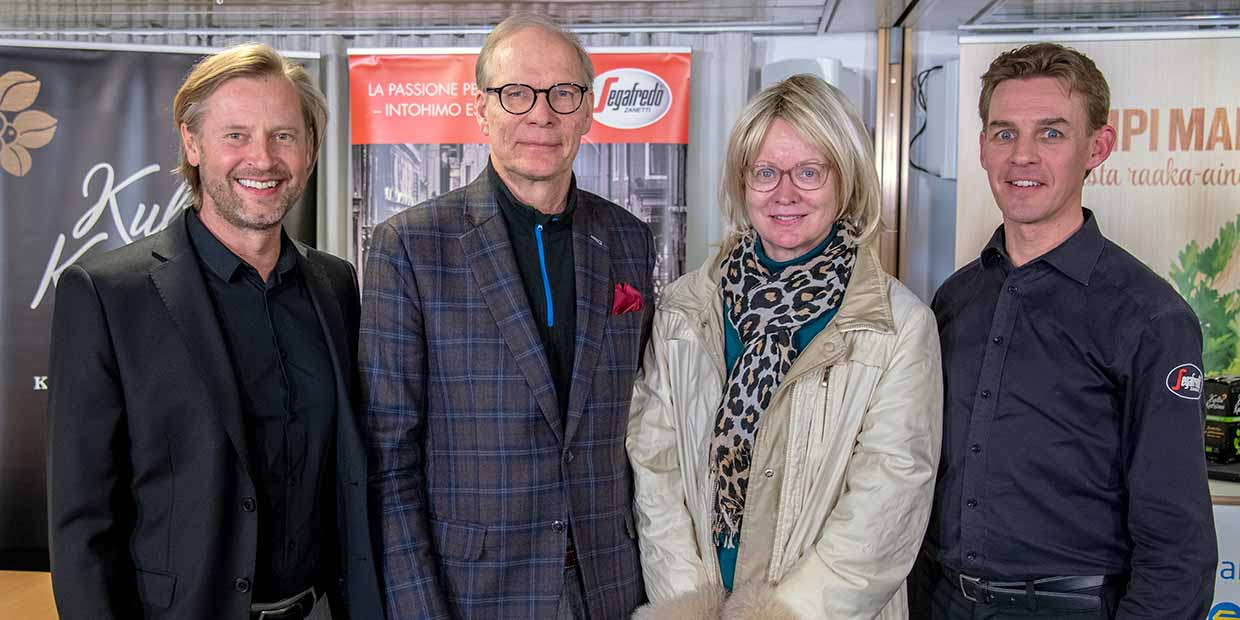Coffee and spices – tips on making the perfect cup of coffee and cooking with spices

Vidman gave tips on making the perfect cup of coffee and offered samples of the delicious coffees he prepared. Foody Allen’s Aki Wahlman took passengers on a trip to the world of spices.
A discerning flavour jury selects the beans to be roasted for Meira’s coffee
The most important coffees in Meira’s coffee range are the Finnish Kulta Katriina coffee and the Italian-style Segafredo coffee. Meira’s coffee laboratory employs three coffee specialists who taste the coffee several times per day. These tastings guarantee that the coffee is of a consistent quality. The beans for Meira’s filter coffees are roasted at the Vallila roastery, which now also roasts the Segafredo filter coffees Segafredo Pausa and Segafredo Biondo.
How to make perfect coffee
– There are tips for making good filter coffee so that you can enjoy a delicious, steaming cup of aromatic coffee, Vidman promises.
The most important thing is clean, fresh, cold water. It minimally removes side tastes and impurities from the water pipes. In addition, the coffee should always be fresh to ensure that the aromas are preserved.
The coarseness of the grind is also important – one good rule of thumb to remember is that the longer the coffee grounds are in contact with the water, the coarser the grind should be. That is why an extremely coarse grind is suitable for coffee simmered slowly in a pot, but a fine grind is used for espresso to allow the water to absorb all of the aromas over a short period of time.
A coffee press is an easy and affordable way to try something new; the press has no filter that absorbs flavours or fats, and it gives the coffee a refined taste.
– It’s easy to prepare, too: put coffee in the press along with freshly boiled water (the optimal temperature is 80 °C), let brew for 3–5 minutes and then press the plunger down, Vidman explains.
It is important to find the right proportion of coffee to water to balance sour and bitter tastes. A rough guideline is around 7 g of coffee per cup. Finally, stir the brewed coffee before drinking. You can try out Meira’s delicious coffees in all of Eckerö Line’s restaurants.
An intense flavour is the most important thing when it comes to spices
– One important factor concerning high-quality spices is that they are processed correctly, says chef Aki Wahlman, who has long worked with Meira.
At Meira, spices are ground, packed and stored so that their aromas are preserved in the best possible way. All of Meira’s spices are processed in the same facilities to ensure that the spices are not moved unnecessarily, and aromas are not lost. This also means that the quality and flavour are more intense, so you do not need to use as much of the spice.
The origin of the spices is also a significant factor; only certain countries produce high-quality ingredients. The most important thing is flavour, which is affected by the oil content of the spices, the amount of oils that evaporate, and the weight of the spices. Stems should not be included in dried spices, even if the stem is used when fresh to season food. Meira does not irradiate its products; any impurities are removed through steaming. This ensures that the spices have a longer shelf life and the drying process is good.


The way we season food has changed
Restaurants have traditionally aimed to highlight the flavours of the ingredients by adding a little salt and pepper, and fresh herbs.
– Now that international cuisine is more widespread, our approach has changed and we want to create new worlds of flavours with spices. In particular, roasted and smoked spices are very popular right now, Wahlman says.
The use of mini and decorative herbs is decreasing, and at the same time there is a desire to use spices to add genuine aesthetics to the food to provide flavour and a pleasant mouthfeel. Crispy crumbs keep greasiness in check and a range of seasoning mixes, such as rubs, add the finishing touch to the surface of the food.
Spices are very versatile and can be used in a wide range of foods. Spices can be pre-cooked and softened through, for example, roasting, smoking or extraction to release their full range of aromas.
– Nowadays we are using less and less salt, which can sometimes make food taste rather bland. Spices can be used liberally to make food flavourful again, Wahlman advises.
Pirkko and Veli-Kalle Tavakka from Helsinki attended the Academy and have now increased their use of spices.
– We learn from our children, who are inspired to use plenty of spices by restaurants, Veli-Kalle Tavakka says and continues:
– We used to season our food with salt and pepper, but now we use more exotic spices in our cooking.
The Tavakkas also enjoy their coffee, and the first thing they do in the morning is to brew filter coffee – they can’t start their day without it. The Tavakkas are always reminded of Meira when they drive past the Vallila roastery.
– It always smells wonderfully of coffee!, they laugh.
The lecture was held in April 2019.



